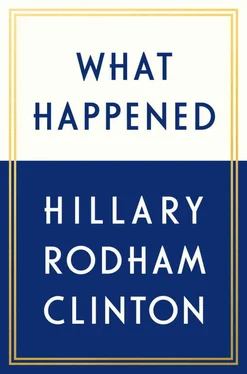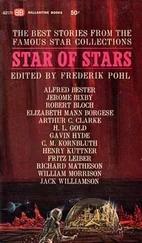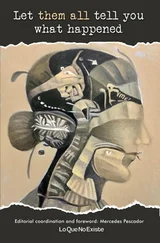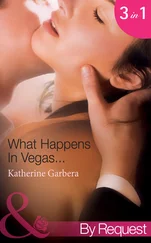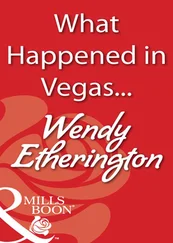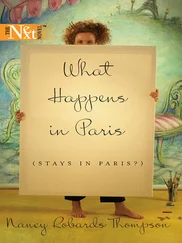Did I want to put myself through a grueling race all over again?
My life after leaving politics had turned out to be pretty great. I had joined Bill and Chelsea as a new board member of the Clinton Foundation, which Bill had turned into a major global philanthropy after leaving office. This allowed me to pursue my own passions and have an impact without all the bureaucracy and petty squabbles of Washington. I admired what Bill had built, and I loved that Chelsea had decided to bring her knowledge of public health and her private sector experience to the foundation to improve its management, transparency, and performance after a period of rapid growth.
At the 2002 International AIDS Conference in Barcelona, Bill had a conversation with Nelson Mandela about the urgent need to lower the price of HIV/AIDS drugs in Africa and across the world. Bill figured he was well positioned to help, so he began negotiating agreements with drugmakers and governments to lower medicine prices dramatically and to raise the money to pay for it. It worked. More than 11.5 million people in more than seventy countries now have access to cheaper HIV/AIDS treatment. Right now, out of everyone being kept alive by these drugs in developing countries around the world, more than half the adults and 75 percent of the children are benefiting from the Clinton Foundation’s work.
After recovering from heart-bypass surgery in 2004, Bill joined with the American Heart Association to start the Alliance for a Healthier Generation, which has helped more than twenty million students in more than thirty-five thousand American schools enjoy healthier food and more physical activity. The Alliance made agreements with major beverage companies to reduce calories in drinks available in schools by 90 percent, and also partnered with Michelle Obama’s Let’s Move! initiative.
The foundation is also fighting the opioid epidemic in the United States; helping more than 150,000 small farmers in Africa increase their incomes; and bringing clean energy to island nations in the Caribbean and Pacific.
In 2005, Bill started the Clinton Global Initiative, a new model of philanthropy for the twenty-first century that brought together leaders from business, government, and the nonprofit sector to make concrete commitments for action on everything from distributing clean water, to improving energy efficiency, to providing hearing aids to deaf children. The annual conferences highlighted the most exciting commitments and their results. No one could just show up and talk; you had to actually do something. After twelve years, CGI members, and their affiliates in CGI America and CGI International, had made more than 3,600 commitments, which have improved the lives of more than 435 million people in more than 180 countries.
Among CGI’s greatest hits were sending 500 tons of medical supplies and equipment to West Africa for those fighting the Ebola epidemic, and helping raise $500 million to support small businesses, farms, schools, and health care in Haiti. In the United States, at no expense to taxpayers, CGI helped launch an amazing partnership led by the Carnegie Corporation of New York to meet President Obama’s goal of 100,000 new STEM (science, technology, engineering, and mathematics) teachers. And it supported the creation of America’s largest private infrastructure fund—$16.5 billion invested by public employee pension funds, led by the American Federation of Teachers (AFT) and North America’s Building Trades Unions (NABTU)—which has created 100,000 jobs and provided skills training to a quarter-million workers every year.
When I joined the foundation in 2013, I teamed up with Melinda Gates and the Gates Foundation to launch an initiative called No Ceilings: The Full Participation Project to advance rights and opportunities for women and girls around the world. I also created a program called Too Small to Fail to encourage reading, talking, and singing to infants and toddlers to help their brains develop and build vocabulary. And Chelsea and I started a network of leading wildlife conservation organizations to protect the endangered African elephants from poachers. None of these programs had to poll well or fit on a bumper sticker. They just had to make a positive, measurable difference in the world. After years in the political trenches, that was both refreshing and rewarding.
I knew from experience that if I ran for President again, everything Bill and I had ever touched would be subject to scrutiny and attack—including the foundation. That was a concern, but I never imagined that this widely respected global charity would be as savagely smeared and attacked as it was. For years, the foundation and CGI had been supported by Republicans and Democrats alike. Independent philanthropy watchdogs CharityWatch, GuideStar, and Charity Navigator gave the Clinton Foundation top marks for reducing overhead and having a measurable positive impact. CharityWatch gave it an A, Charity Navigator gave it four stars, and GuideStar rated it platinum. But none of that stopped brutal partisan attacks from raining down during the campaign.
I have written about the foundation at some length here because a recent analysis published in the Columbia Journalism Review showed that during the campaign there was twice as much written about the Clinton Foundation as there was on any of the Trump scandals, and nearly all of it was negative. That gets to me. As Daniel Borochoff, the founder of CharityWatch, put it, “If Hillary Clinton wasn’t running for President, the Clinton Foundation would be seen as one of the great humanitarian charities of our generation.” I believe that’s exactly what it is and what it will continue to be, and I was proud to be a part of it.
Beyond my work with the foundation, I also spent time in 2013 and 2014 writing a book called Hard Choices about my experiences as Secretary of State. The book was long—more than six hundred pages about foreign policy!—but I still had more stories left on the cutting room floor and a lot more things I wanted to say. If I didn’t run for President, there could be more books to write. Maybe I could teach and spend time with students.
What’s more, like many former government officials, I found that organizations and companies wanted me to come talk to them about my experiences and share my thoughts on the world—and they’d pay me a pretty penny to do it. I continued giving many speeches without pay, but I liked that there was a way for me to earn a very good living without working for any one company or sitting on any boards. It was also a chance to meet interesting people.
I spoke to audiences from a wide range of fields: travel agents and auto dealers, doctors and tech entrepreneurs, grocers and summer camp counselors. I also spoke to bankers. Usually I told stories from my time as Secretary of State and answered questions about global hot spots. I must have recounted the behind-the-scenes story of the raid that brought Osama bin Laden to justice at least a hundred times. Sometimes I talked about the importance of creating more opportunities for women, both around the world and in corporate America. I rarely got partisan. What I had to say was interesting to my audiences, but it wasn’t especially newsworthy. Many of the organizations wanted the speeches to be private, and I respected that: they were paying for a unique experience. That allowed me to be candid about my impressions of world leaders who might have been offended if they heard. (I’m talking about you, Vladimir.)
Later, my opponents spun wild tales about what terrible things I must have said behind closed doors and how as President I would be forever in the pocket of the shadowy bankers who had paid my speaking fees. I should have seen that coming. Given my record of independence in the Senate—especially my early warnings about the mortgage crisis, my votes against the Bush tax cuts, and my positions in favor of financial regulation, including closing the tax loophole for hedge funds known as carried interest—this didn’t seem to be a credible attack. I didn’t think many Americans would believe that I’d sell a lifetime of principle and advocacy for any price. When you know why you’re doing something and you know there’s nothing more to it and certainly nothing sinister, it’s easy to assume that others will see it the same way. That was a mistake. Just because many former government officials have been paid large fees to give speeches, I shouldn’t have assumed it would be okay for me to do it. Especially after the financial crisis of 2008–2009, I should have realized it would be bad “optics” and stayed away from anything having to do with Wall Street. I didn’t. That’s on me.
Читать дальше
